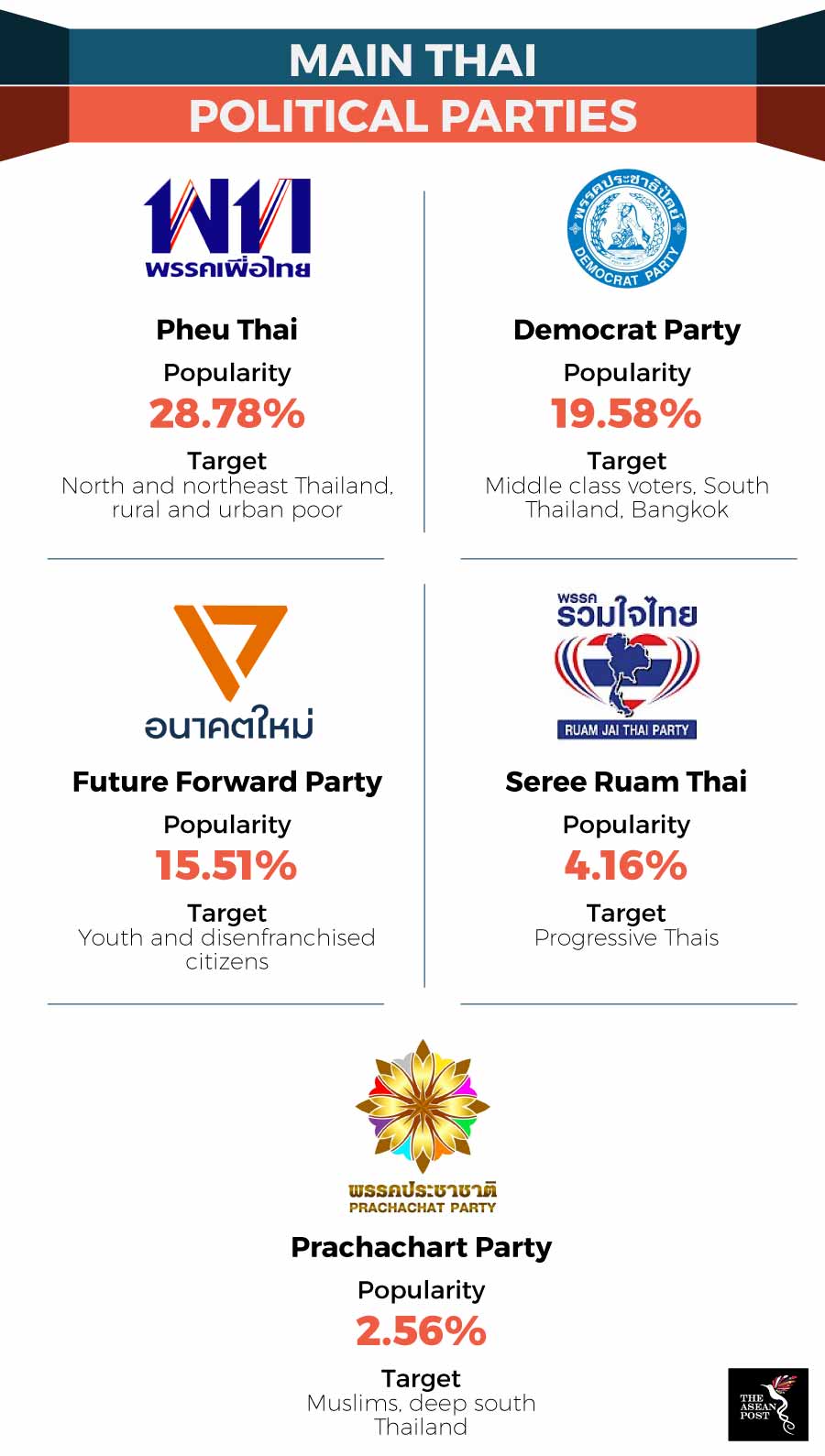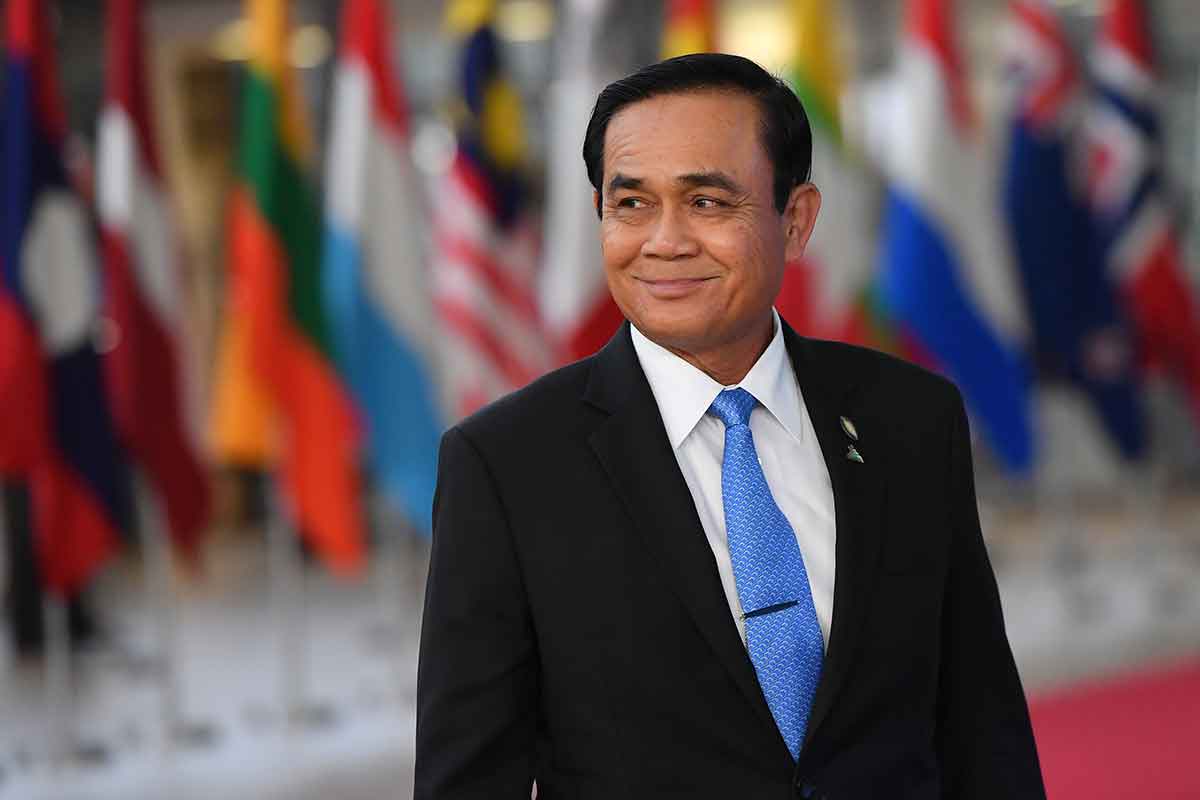Last week, Thai Prime Minister Prayut Chan-o-cha launched a new Facebook page, new Twitter and Instagram accounts, and a new website. The move has been met with mixed reactions on social media with some praising and others criticising him. Prayut explained that it was all to “come into closer contact with the public.” Politicians, however, believe he has taken unfair advantage of the situation in the run-up to the general election expected in late February.
Although the National Council for Peace and Order (NCPO) last month eased its ban on parties engaging in political activities, they are still prohibited from using digital platforms for their campaigns. The fact that Prayut has clearly expressed his interest to enter politics after the possible election coupled with the fact that political parties in Thailand are limited to traditional means to campaign, explains the general frustration.
The matter is especially pertinent considering Thailand’s high rankings when it comes to social media use. According to social media management platform Hootsuite’s and global agency We Are Social’s “Digital 2018 global overview”, Thais registered the most time spent on the internet globally last year at 9.4 hours per day, most time on the mobile internet at 4.6 hours a day, and eighth for number of Facebook users. Being the only one allowed to tap into that market would provide a serious advantage to Prayut.
How to use social media
About a week after the 14th general election (GE14) in Malaysia, Najwa Abdullah, a research analyst with the Malaysia Programme at the S. Rajaratnam School of International Studies (RSIS), and Amalina Anuar, a research assistant in the same programme, wrote a commentary on the effect social media had on the historic election result.
In the commentary, the researchers made two interesting points. Firstly, news sent via WhatsApp usually comes from trusted family and friends, which made it difficult for the ruling National Front (Barisan Nasional) party at the time to control the narrative. Secondly, while the National Front’s campaign content was of higher quality, it failed to connect with Malaysians on an emotional level. Meanwhile, The Alliance of Hope’s (Pakatan Harapan) campaigning appeared to be sincere.
While Prayut may have stopped political parties from using digital platforms for their political campaigning, he has not all together banned one of Thailand’s most popular messaging apps – Line - which also has an encrypted chat option.
If political parties are somehow able to mobilise family and friends of the voting public and engage them using personal and emotional touches, then this could provide a loophole for political parties to exploit, effectively levelling the playing field. Technically, it would not be the political parties themselves campaigning on these digital platforms, but the public campaigning on their behalf.
A united opposition
Another lesson that the opposition in Thailand can learn from the Alliance of Hope’s component parties is their decision to come together as a single coalition, each with its own strengths, targeting different segments of Malaysia’s voters. Several political pundits had noticed this during the lead up to GE14. The Malaysian United Indigenous Party (Parti Pribumi Bersatu Malaysia) was thought to have appealed most to rural Malays, the Democratic Action Party (DAP) appealed to urban non-Malays, the People’s Justice Party (Parti Keadilan Rakyat) appealed to urban Malays, and the National Trust Party (Parti Amanah Negara) targeted conservative Muslims.

Source: Various sources
According to the National Institute for Development Administration’s (NIDA) latest poll in September, the four political parties which seem to have garnered the most support are: For Thais Party (Pheu Thai) at 28.8 percent, the People's State Power Party (Phalang Pracharat) at 20.6 percent, the Democrat Party at 19.6 percent, and the Future Forward Party at 15.5 percent.
While the People's State Power Party may be pro-military, the other three parties are not. The combined power of these other three parties with less popular ones such as the Thai Liberal Party (Seree Ruam Thai) which has been vocal against the military junta, and the Nation Party (Prachachart Party), a Muslim party targeting voters in the deep south may just be the ticket that beats Prayut and his allies.
While not all Thai opposition parties may see eye to eye - like Malaysia’s Alliance of Hope did when it made the decision to include the Malaysian United Indigenous Party in the coalition - differences will have to be overcome if the overarching goal is to unseat Prayut and his junta. The one major factor working against Thailand’s opposition parties – if the election is truly close at hand - seems to be time.
Related articles:
Did Prayut just checkmate the opposition?
Thailand relaxes political activity ban
